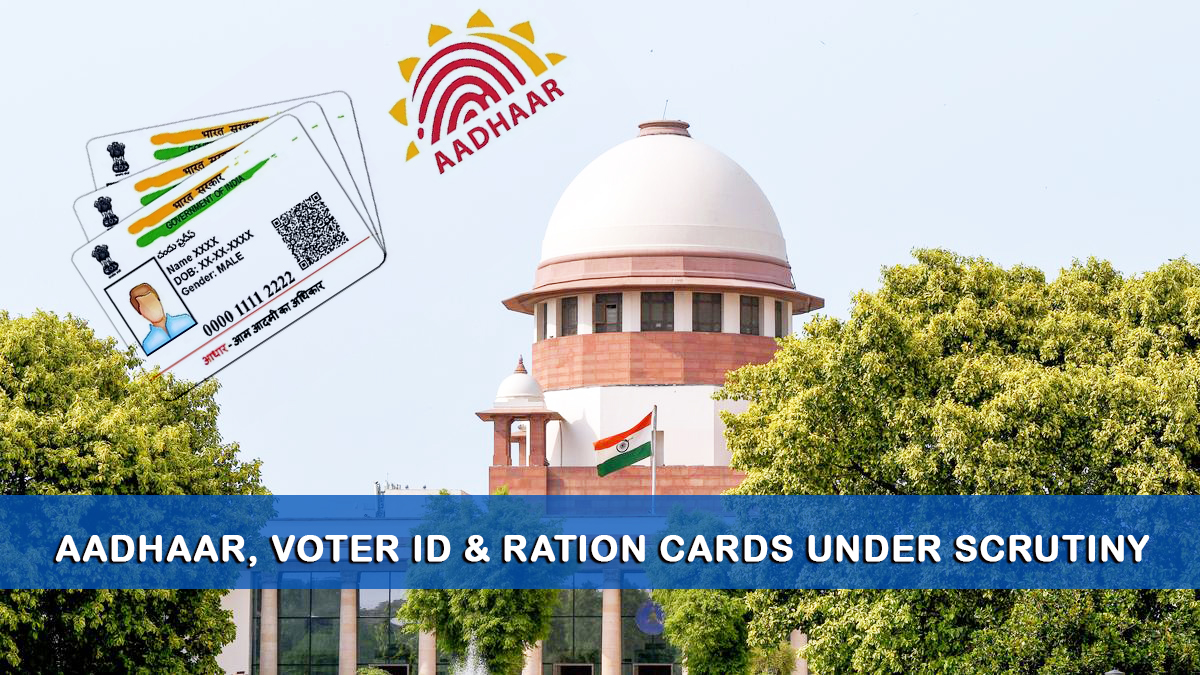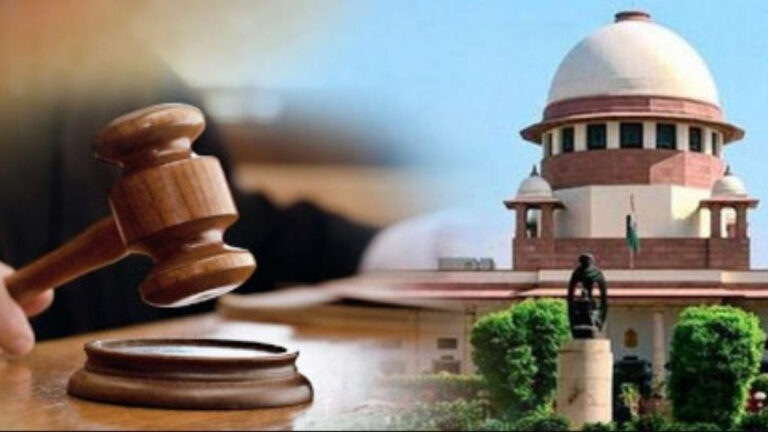In a significant development, the Election Commission of India (ECI)has informed the Supreme Court that commonly used identity documents like Aadhaar, Voter ID, and Ration Cards are not fully reliable for verifying voter eligibility, especially in the context of Bihar’s electoral roll revision. This statement was made during a hearing concerning alleged irregularities in the voter list of Bihar, where concerns were raised over inclusion of bogus or ineligible voters.
Why the ECI Is Concerned
The ECI’s submission highlights a crucial issue — the reliability of identity documents in ensuring a clean and accurate electoral roll. According to the ECI, these documents, while useful for establishing identity, do not necessarily prove an individual’s citizenship, which is a fundamental criterion for voter eligibility. This distinction is important because only Indian citizens are allowed to vote in elections, and the presence of non-citizens on voter rolls could severely undermine the electoral process.
The ECI clarified that these documents were originally created for different purposes. Aadhaar is meant for welfare benefits, ration cards for subsidized food distribution, and voter ID cards for establishing identity during voting. None of these documents rigorously verify citizenship status during issuance.
The Supreme Court's Role
The Supreme Court is currently hearing a case related to alleged duplication and inaccuracies in Bihar’s voter list. The petitioners have alleged that several non-citizens and ineligible persons have been included in the electoral roll, calling for a thorough revision. The Court asked the ECI about the mechanisms in place to ensure only eligible voters are included, prompting the ECI’s response about document reliability.
Implications for Future Elections
This development raises important questions about the integrity of voter lists not just in Bihar, but across India. With state elections around the corner and the 2029 General Elections on the horizon, the ECI may be compelled to explore stricter verification methods, possibly involving field-level verifications or alternative documentary proofs.
Conclusion
The Election Commission of India submission has sparked a wider debate on voter verification and the limitations of identity documents. As the Supreme Court continues to hear the matter, the outcome could have a long-lasting impact on how electoral rolls are prepared and maintained in India.



